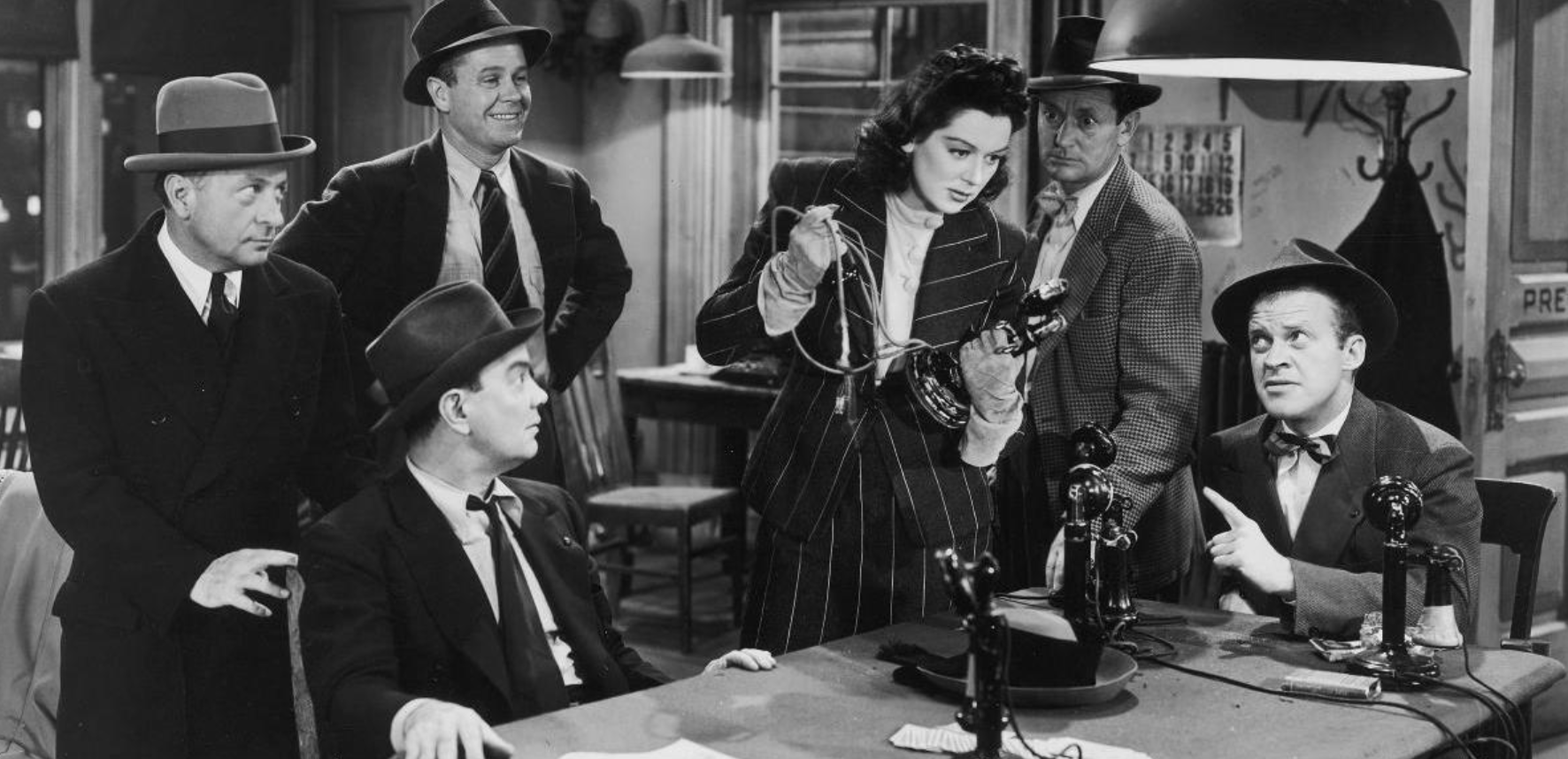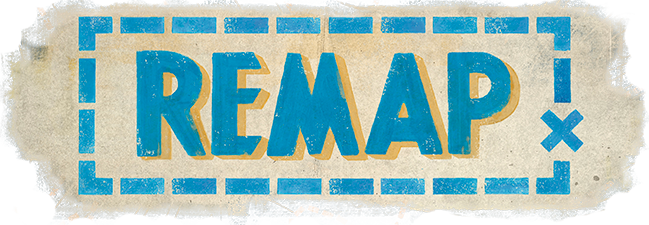Over the last week, Remap turned one. It's shocking to realize it's been a full year since Waypoint imploded, but it was also amazing that Waypoint even managed to survive nearly seven years under VICE. But Waypoint arrived into a media environment that was very different from the current one. Tons of media jobs are going away, and it's unclear how many are coming back. None of us got into this line of work wanting to run a business, yet suddenly, here we are!
Is that a good thing? Is that a bad thing? How do we create pipelines for new talent? What does it mean to scale a business like this? Rob and Patrick don't have all the answers, but one year into Remap, they're trying to figure it out.
Rob: It’s hard to overstate how bleak I find the prospect of Ziff-Davis-owned IGN buying up all the Gamer Network websites. Rock, Paper, Shotgun was a formative website for me, probably the last site I read truly religiously before embarking on this as a career. Eurogamer has maintained the highest quality bar for consumer reviews I’ve seen in games, an accomplishment I’ve come to appreciate more having been on both sides of the editing and writing dynamic. It was hard to imagine that those websites would not be seriously diminished under Ziff management, and of course within an hour of the news breaking we saw GI.biz’s Brendan Sinclair and RPS’s Alice Bell posting that they had been laid-off. It was probably the fastest I have ever seen an acquisition transform into the process of throwing people out of their jobs.
As you always see around stories like this, you see a lot of folks wondering what they can do and talking about the importance of supporting independent outlets, or subscriber-supported media. Obviously as someone in that line of work, I’m always happy to see people have that impulse. It’s cool that people want to know how they can help at a time when we are daily witnessing the hollowing-out of media.
But I always feel a bit uncomfortable when I see people saying stuff like, “...and that’s why people should support places like Remap!” the face of layoffs like this. Because much as I’d like to pretend otherwise, I know how far we are from being able to replicate a fraction of what an IGN, or a Eurogamer, or even an RPS can do.
Remap is three people plus some contractors and contributors, all of whom do work that almost immediately turns into outcomes that our audience can see. If I were feeling grandiose I’d say that it’s a "lean operation" where every penny goes to pay or gets reinvested in the business. However, that would be masking another reality: Remap does not have a ton of capacity. The reason we operate this way is because we don’t have the kind of margins where we can pay for work and time that doesn’t translate into some kind of immediate output. That’s not because the audience is putting us under any real pressure to deliver, but because we mostly have enough on our hands doing a handful of podcasts and streams a week, plus the odd article. When we are recording, there is no other work getting done at Remap. If we are investing time in looking at one game release for the podcast that week, that means there’s a bunch of others that are necessarily being ignored. To deliver any kind of meaningful journalistic or critical coverage of the industry would require having enough people available to get a lot of work done in parallel to the main stuff Remap does. And by the way, that kind of work is harder and frequently more time intensive.
That's where scale becomes a real challenge in subscriber-supported journalism. It’s not like it’d be “double the size of Remap” or “increase Remap’s freelance budget.” Covering an industry as a reporter is not a thing that can be done very easily on a part-time or piece-by-piece commission basis. It’s a job where someone is tasked with research and reporting every day, and that work might not generate a good story out of it for weeks, months, or ever. A lot of that work results in answers to questions about minutiae that aren’t of interest outside a fraction of the audience… but it’s important work that also enables more ambitious and widely-read pieces of journalism. Ditto a reviews desk: even if you’re relying a lot on strong freelance contributors, planning, coordinating, and editing all that coverage is a full-time job at minimum. Probably it’s more than a single full-time job to take it from “viable” to “good.”

If I tell people to subscribe to Remap, I’m optimistically hoping for some good linear growth. If we got a hundred new subscribers last month, it’d be truly amazing to get a hundred and ten this month. That would be an astonishing growth trend for a company like ours! But to replicate the functions of a major games website, we’d be talking about thousands of new subscribers funding something where it won’t always be obvious what their money is buying. “Hey thanks for subscribing, you’ve enabled us to have a reporter go beat their heads against walls five days a week, and an expensive legal insurance policy to let them actually write something, plus there’s now an accountant you’ll never hear about doing expense tracking so nobody ever has to interact with Concur, the Wage Theft Legalization Software.”
That’s a hard sell! It’s such a hard sell that it basically explains why all this stuff has historically depended on the ad model. In a nutshell, good journalism and criticism depends on people doing a lot of work that most people appreciate in the abstract or the aggregate, but would rarely purchase directly. Making the jump from “hey support this handful of creators” to “support this expensive and increasingly abstract enterprise” feels like going from building a biplane to landing on the moon for a business like ours.
Patrick: I recently hosted a panel at Northwestern University, and at the end, I was chatting with a few folks who were trying to pursue jobs in games media. I found myself at a complete loss at what to describe as their path forward. “Simply be like me and spend 20+ years gaining knowledge, experience, and fans who will then pay you to continue working” is not a viable option. Go on YouTube, I guess? It’s probably the most realistic answer, because it’s probably where the future of most games commentary is headed.
But is commentary and analysis the same as being a member of the media? Am I just an elitist? Probably.
When the latest round of media layoffs were happening in the leadup to our own, I tried to calm my nerves with a sense of history, a history you and I have experienced over the decades. This has happened before, this will happen again. Layoffs are brutal but cyclical. People love games, so there will be publications to cover games. And that’s probably still true in the most basic senses, but in what form?
I don't even know what a “website” is anymore. We spent money to build one, but we’re slowly waiting for VICE to delete Waypoint’s history from the internet. The function of a website in the past was to, hopefully, become a homepage for someone. Ours is functionally an archive. I think it’s possible for us to track how often people are visiting the website, but I haven’t looked at any of that data since we launched the website. But I have to admit one of my favorite tiny little joys every day is going into our database, publishing articles for the podcasts and articles and videos we’ve done, and arranging the promotional wheel at the top. Our work is scattered across so many places because that’s just how modern media publishing works, but it’s so satisfying to see it arranged nearly. It helps me more fully appreciate our work.

People still think of me as a reporter, I think, but the “Scoops” nickname is less and less applicable these days, because I simply do not have the bandwidth to do meaningful reporting. I still like talking to game developers, I still like unpacking the creative process. I like to think that my time in the industry has given me some insight that’s useful on Remap Radio. I do not know if the interviews we publish on the podcast are everyone’s favorite thing that we do, but it makes me really happy, and lets me pretend I’m still living in a world where reporting, my bread and butter, is also paying the bills, and so I can live with the difference.
I think that’s what comes to mind when I work through these meta trends, though. For all the faults of mega sites like IGN, GameSpot, and the like, they provided opportunities for new writers to learn the craft and go elsewhere. That “elsewhere” might not have even been in games journalism, but applying the lessons of writing and communication “elsewhere” in video games. We can pay freelancers and contractors good rates, but at our current scale, it's hard to be a proper funnel for the next generation of critics.
We're not the only ones in this space and maybe some of our peers have better answers to the questions around expansion. But from my perspective, outlets like ours are like life rafts to help maintain an identity that, thankfully, some find important. But that also makes it hard to grow.
Library, Zeal or Foundation tier
Subscribe at Library, Zeal or Foundation tier(s) or above to access "Subscriptions, Journalism, and You". You'll also get access to the full back catalog of that tier's content.
Sign up now Already have an account? Sign in